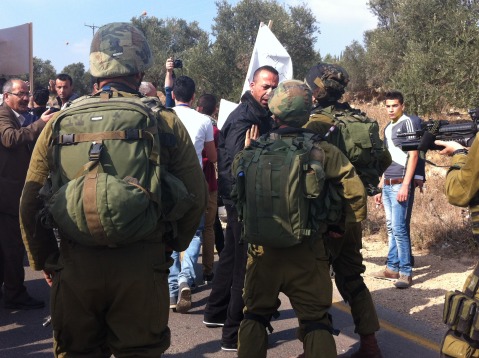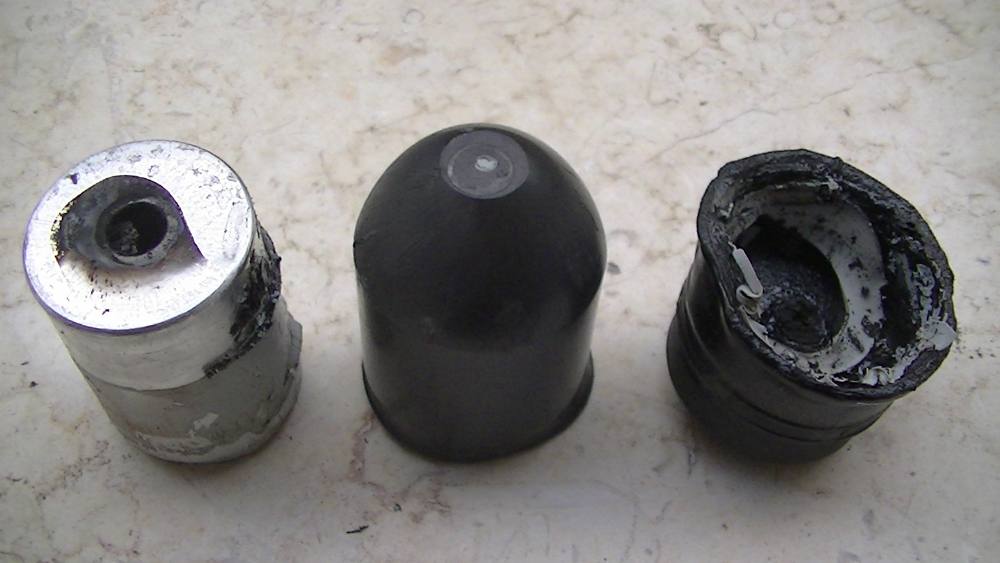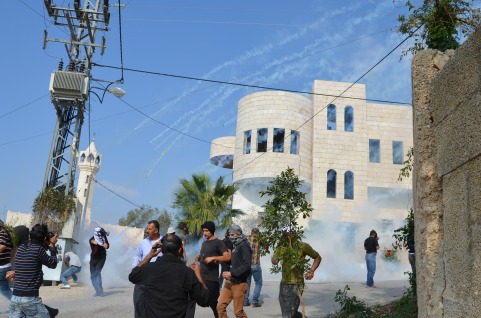Tag: Tear-Gas Canister
-
Demonstration in Ya’bad is violently repressed by Israeli forces
21st November 2013 | International Solidarity Movement, Nablus Team | Ya’bad, Occupied Palestine Yesterday in the village of Ya’bad, a peaceful protest was violently repressed by Israeli forces through the use of tear gas canisters, stun grenades and rubber-coated steel bullets. Demonstrators were directly targeted by Israeli soldiers, five Palestinians were injured and two were…
-
Photos of Israeli tear gas canisters fired at Palestinian demonstrators in the Gaza ‘buffer zone’
17th November 2013 | Corporate Watch, Tom Anderson and Therezia Cooper | Gaza, Occupied Palestine On 2nd November 2013 Israeli forces fired tear gas at Palestinians demonstrating in the Gaza buffer zone East of Gaza City, by the Nahal Oz checkpoint. A report of the demonstration by an eyewitness can be viewed here. Pictures of one of the…
-
Israeli forces injure 8 Palestinians during aggressive Kafr Qaddum demonstration
15th November 2013 | International Solidarity Movement, Nablus Team | Kafr Qaddum, Occupied Palestine Today, Friday 15th November, the Israeli army detained four children before the weekly demonstration in Kafr Qaddum. Israeli soldiers then invaded the village during the protest, firing many tear gas canisters and injuring 8 Palestinians. At approximately 9:00 this morning, a…



